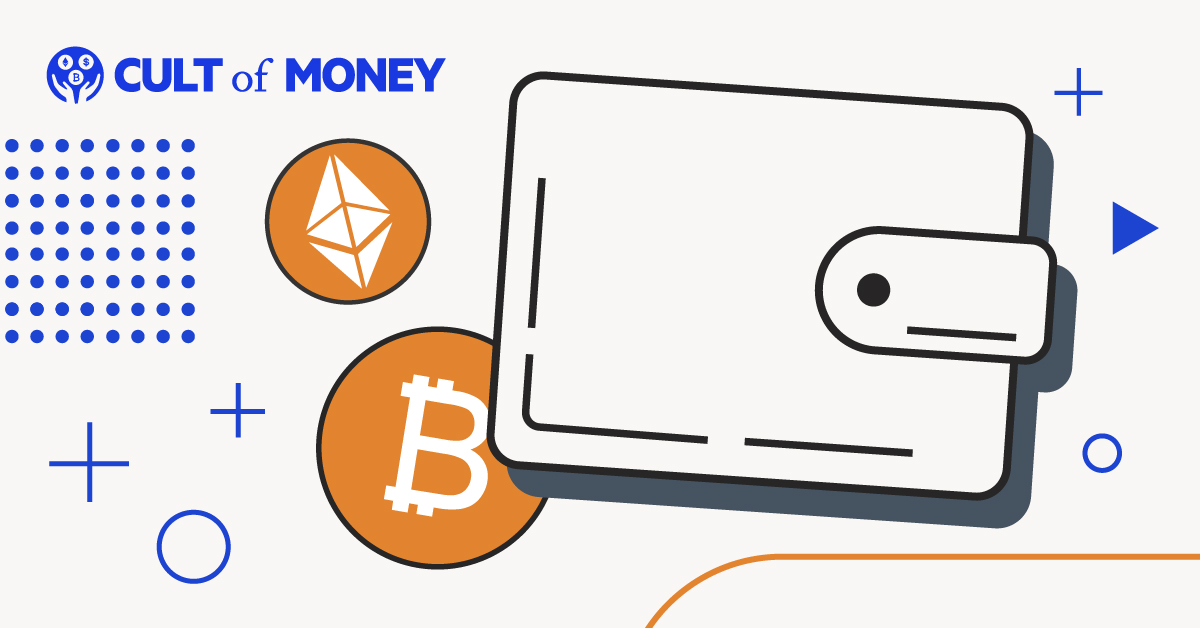
Exodus is a popular desktop and mobile cryptocurrency wallet supporting robust features.
The free software wallet supports more than 260 different cryptocurrencies and integrates with web browsers for Web3 functionality, the Trezor hardware wallet for added security, and works with a suite of built-in apps.
The wallet software is free to download and use, though some services and features may require transaction-related costs. Here’s a closer look at Exodus for cryptocurrency and what you need to know to decide if it’s the right software wallet for your cryptocurrency and NFT portfolio.

Quick Summary
Pros
Cons
About Exodus Wallet
Exodus is a cryptocurrency software wallet for desktop and mobile devices. It’s also available as a Web3 wallet compatible with Chrome, Brave, and other Chromium-based web browsers. Founded in 2015, the wallet receives regular updates for security, new features, and improved performance.
If you’re looking for the additional security provided by a hardware wallet, also known as cold storage, Exodus works with one of the most popular hardware wallets on the market. And it supports more than 260 of the most popular blockchains, including:
With wide device support, robust features, and the ability to keep all of your crypto off of exchanges and in your own wallet you control, Exodus may be a good option for anyone new to crypto or looking for a user-friendly software wallet solution.
Exodus Wallet Features
Exodus Wallet works across several platforms, and the exact way each feature works may vary depending on which you’re using.
Here, we’re focused on what you can do with the desktop app, offering the most robust features.
Wallet & Portfolio
Exodus started as a wallet, where it shines with the best features that are essentially free to use. It supports more than 260 different digital currencies. And while you pay network transaction fees, Exodus doesn’t charge anything when sending or receiving from other wallets or platforms with your wallet.
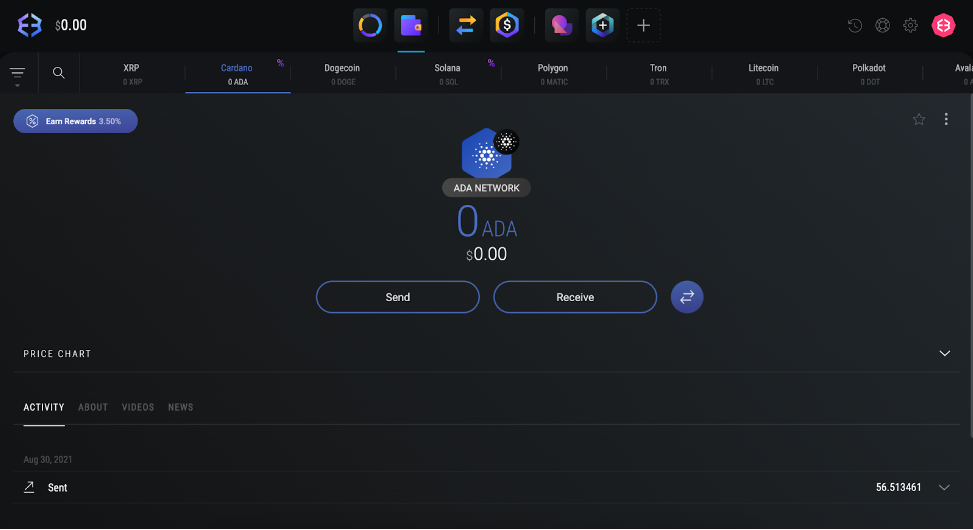
The interface is intuitive and easy to use. You can scroll through tabs for each asset in your wallet and use easy sending and receiving features. The Portfolio feature summarizes holdings across different asset types in your wallet.
Using a hardware wallet bridge, the wallet is compatible with Trezor hardware wallet devices. Plug in your wallet or connect with Bluetooth, and you can interact with the wallet via Exodus, which has an easier-to-use interface than the default Trezor app.
Swap Cryptocurrencies
The swap feature makes converting one currency into another quick and easy. Exodus transparently shows estimated network fees and allows you to set a fee limit, though it may slow down or prevent your transaction from processing.
Exodus searches multiple partner exchanges to find you the best deal when entering your transaction. But beware, spread fees are involved, where the crypto exchange and Exodus make money nontransparently.
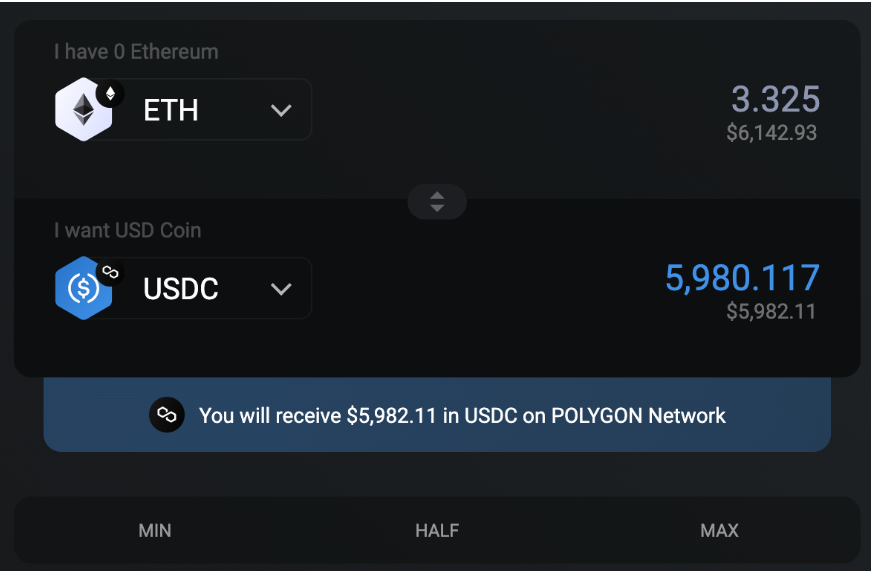
If you’re new to spreads, this money-making method is common in the crypto industry. The exchanges swap currency at different rates for buy and sell transactions, giving them a small spread, which they keep as profit.
Fiat Onramp
The fiat onramp section of the Exodus app enables users to buy into the cryptocurrency ecosystem with traditional government-backed currencies. Exodus works with MoonPay, Ramp, and Sardine to offer these transactions.
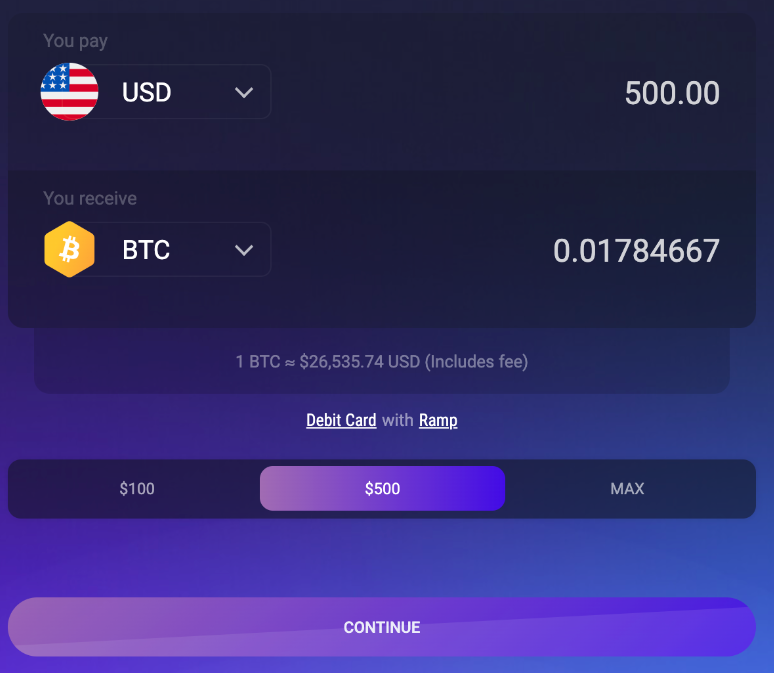
Fees are baked into the purchase price, so you’ll see the amount of crypto you’re buying per dollar (or euro or other currency) in net terms without the fee broken out.
When setting up your transaction, Exodus automatically picks the cheapest of the partner apps for you, and you can pick another if you want to pay more. Debit and ACH are supported.
NFTs
Exodus is compatible with non-fungible tokens (NFTs), enabling you to send, receive, purchase, and view your holdings. It works with multiple blockchains, including Ethereum, Solana, and Algorand.
You may have a better experience with NFTs using the Exodus Web3 wallet, which connects to compatible platforms like OpenSea and Rarable. You’ll need to install the Web3 wallet in your Chromium-compatible browser, such as Chrome, Brave, or my new favorite, Arc.
Staking Rewards
Rewards are an exciting feature that enables you to earn from your cryptocurrency holdings. When you have a balance from a compatible currency on a compatible blockchain, you can stake your crypto to earn rewards measured in APY.
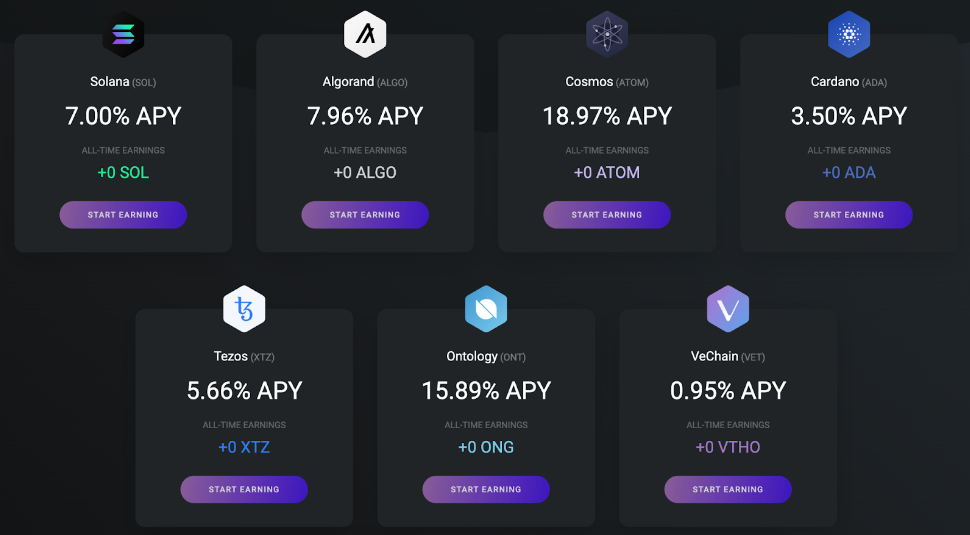
While it’s common to earn rewards through some exchanges and decentralized finance (DeFi) apps, earning with multiple currencies in the wallet you control is somewhat novel.
Apps
Exodus works with Exodus-created and third-party apps to expand functionality. In fact, the NFTs and rewards features are both run as Exodus apps. You can also turn on an app to buy shares in Exodus, similar to shares of stock.
New apps don’t come into the wallet often, but it’s nice to know new features may be added using this convenient methodology.
Exodus Wallet Pricing & Fees
Exodus is free to download and use. There are no recurring fees, and Exodus earns money through spreads when you enter cryptocurrency transactions through the app. In addition to network fees, you could run into fees from the swap provider and a spread added by Exodus.
Fees are not completely transparent, a major drawback to the spread fee system used here and elsewhere.
Exodus Wallet Alternatives
In most ways, Exodus stands in a league of its own with its unique desktop and mobile features. Here are a few Exodus alternatives to consider:
- Trust Wallet: Trust Wallet offers a highly secure wallet solution for mobile, plus a Web3 plugin. It’s also free to download and use outside of network fees and using the app for entering transactions.
- MetaMask: MetaMask is among the most popular Web3 wallets, with a browser-first experience. But there’s no desktop or mobile version.
- Ledger: As one of the leading hardward wallets, you could consider using Ledger over Exodus. And Ledger has its own Legder Live app to still help you interact with Web3.
Account Opening Process
Exodus doesn’t require you to open an account. You can download the app and generate your wallet’s seed phrase and blockchain keys with a few clicks without entering personal information.
If you use third-party services for buying, selling, or swapping crypto, you may have to go through their know your customer (KYC) requirements. For privacy, Exodus is a standout choice.
Safety & Security
Exodus primarily works as a software wallet that lives on your device. If your device is hacked and someone gets your password, secret keys, or seed phrase, they can steal your assets with little recourse.
To level up your security, consider pairing Exodus with the Trezor wallet. When you do so, Trezor holds your private keys completely offline, so it’s almost impossible for someone to steal that information.
As with all online apps and financial products, using a unique password is critical everywhere. That way, when some site inevitably gets hacked and leaks your data, your crypto passwords are not made public.
Customer Service
Exodus.com holds a reasonably good 4.1-star average rating on Trustpilot with over 3,000 reviews. Most negative reviews focus on trouble with third-party partners used to buy, sell, or swap crypto.
Others focus on issues with challenges with blockchain transactions, indicating the users don’t have a very good idea of how those transactions work. Enter all blockchain transactions carefully, as they can’t be reversed or undone.
The Bottom Line
Exodus Wallet is a versatile and feature-rich cryptocurrency wallet that is ideal for both newcomers to the cryptocurrency scene and more experienced users. Offering compatibility with over 260 cryptocurrencies, as well as NFT support, Exodus enables users to manage their digital assets across multiple platforms, with an easy-to-use and intuitive interface.
The wallet also offers the ability to earn rewards through staking, and supports integration with the Trezor hardware wallet for enhanced security.
However, some of its services and features entail spread fees and transaction-related costs, which might not be fully transparent. While the potential security risk of software wallets exists, steps can be taken to mitigate it, such as pairing with a hardware wallet.
Overall, Exodus Wallet stands as a comprehensive, user-friendly solution for cryptocurrency management, despite its fee-related limitations.

Eric Rosenberg is a financial writer, speaker, and consultant based in Ventura, California. He holds an undergraduate finance degree from the University of Colorado and an MBA in finance from the University of Denver. After working as a bank manager and then nearly a decade in corporate finance and accounting, Eric left the corporate world for full-time online self-employment. His work has been featured in online publications including Business Insider, Nerdwallet, Investopedia, The Balance, HuffPo, Investor Junkie, and other fine financial blogs and publications. When away from the computer, he enjoys spending time with his wife and three children, traveling the world, and tinkering with technology. Connect with him and learn more at EricRosenberg.com.
